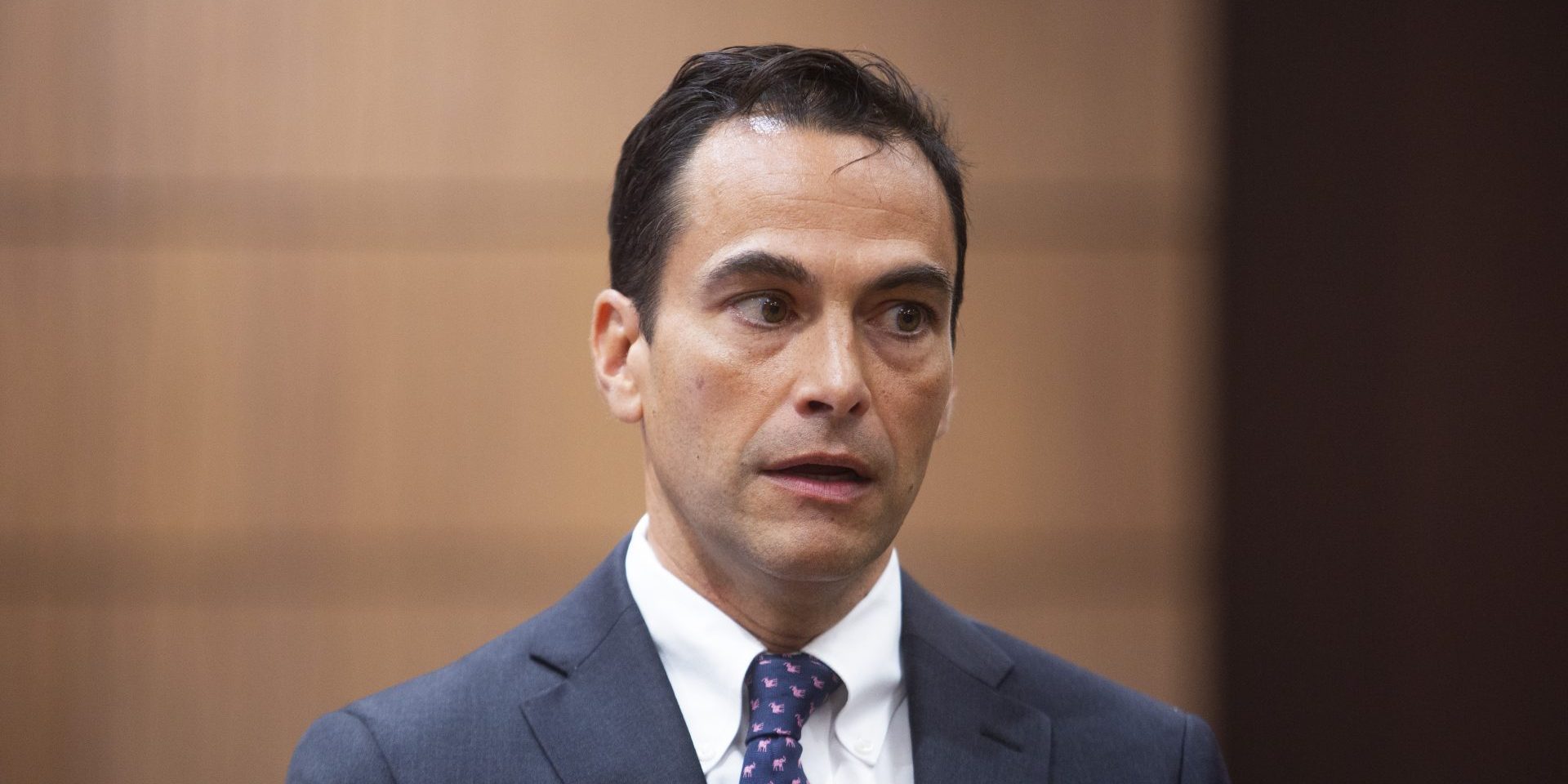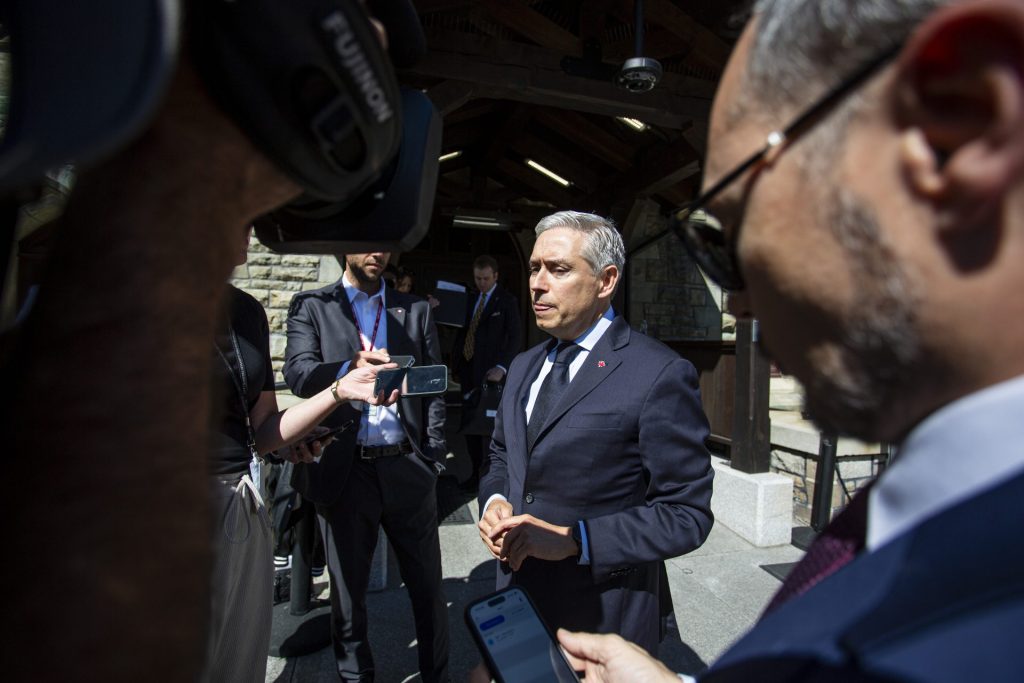Budget watchdog calls government’s fiscal track ‘alarming,’ ‘stupefying,’ ‘unsustainable’

Interim Parliamentary Budget Officer Jason Jacques’ latest report offers a grim take on Canada’s economic and fiscal outlook.
In the Sept. 25 report, Jacques’ office forecast weak economic growth for the foreseeable future: between 1.2 per cent and 1.8 per cent for each year between now and 2030. The Parliamentary Budget Office (PBO) estimated that Canada’s GDP level will end up 0.5 per cent lower in 2030 than it would have been without the current and expected trade disruptions.
That’s real GDP, which accounts for purchasing power. Nominal GDP—strictly measuring current dollars—is projected to be $12.9-billion lower, on average, each year thanks to the trade war with the United States. That gives us the most straightforward measurement of how that trade war will eat into the government’s tax base, according to the PBO report.
The deficit? The PBO projects that it will “increase sharply” from $51.7-billion in 2024-25 to $68.5-billion in 2025-26, thanks to the combination of economic weakness, government tax cuts, and planned government spending.
This spike in the deficit comes not just in absolute terms, but also in terms of our ability to service the debt, a.k.a. debt-to-GDP ratio. The PBO estimated that ratio will increase from 41.7 per cent in 2024-25 to more than 43 per cent in the “medium term.”
That last bit explains why Jacques told MPs on the House Government Operations and Estimates (OGGO) Committee earlier this month that his office couldn’t find any kind of fiscal “anchor” to which the federal government was committed. In the Sept. 16 appearance, Jacques said the apparent lack of so-called fiscal anchors to keep Ottawa’s debt spending in check causes the people he works with “a considerable degree of concern at this point.”
Jacques was back before OGGO on Sept. 25. He didn’t sugar coat his assessment of the government’s fiscal track in his comments to the committee.
“I think everybody should be concerned,” he said about his office’s projection that the debt-to-GDP ratio was on track to grow in the years ahead.
“It’s a really serious day,” said Jacques, whom Prime Minister Mark Carney (Nepean, Ont.) tapped on Sept. 3 to take over as the budget watchdog for a six-month term.
The PBO’s figures don’t include about $20-billion worth of as-yet-confirmed Liberal campaign promises, nor do they reflect all of the defence spending to which the prime minister has committed since the election.
“It’s certainly not sustainable,” said Jacques of the government’s fiscal position.
He went on, in response to questions from opposition MPs on the committee.
“Not sustainable in the long term, that’s what’s shocking,” Jacques said in French.
“Clearly revenue will have to go up, and perhaps at the same time spending will have to go down. The current numbers aren’t sustainable,” he said.
Later: “the most important word in the release this morning was ‘unsustainable.’”
“Unsustainable means you don’t have the option of saying, ‘Maybe I’ll wait a couple of years, I’ll see how things go.’ It means, if you don’t change, this is done,” said Jacques.
He also called the projections for increasing federal debt service payments “stupefying,” and “shocking,” and said they should be “very alarming.”
“I believe the Nov. 4 budget will show that changes are to come,” he said.

Finance Minister FRANÇOIS-PHILIPPE CHAMPAGNE‘s office responded to the PBO’s testimony in a statement sent to The Hill Times Friday afternoon.
“While we respect the PBO and the important work they do to provide independent analysis to MPs and Senators alike, we have been clear about our plans to spend less so we can invest more,” said the statement from press secretary JOHN FRAGOS.
The government plans to outline this “new approach” to fiscal management in the upcoming budget on Nov. 4, said Fragos. It will be guided by three fiscal anchors, he said: balancing the government’s operational spending within three years, showing a declining deficit-to-GDP ratio, and raising “upwards of” $500-billion of investment into the economy.
Last week, Champagne (Saint-Maurice—Champlain, Que.) announced that he would release the government’s annual budget on Nov. 4. He had previously indicated that the budget would come in October. His office later confirmed that the date had been moved back in part to allow MPs a chance to promote the budget to their constituents during a Nov. 10 break week in the parliamentary calendar.
The government typically offers a budget in the spring and an economic update in the late fall. An April election upended the schedule, and Carney opted against an earlier update.
Carney has since made major spending announcements, and the PBO report accounted for any measures announced up to Aug. 11, including $8.3-billion in new defence spending, as well as spending announced on Sept. 5 to protect workers impacted by the trade war with the U.S.
It also includes an expected $8-billion in countermeasure tariff revenues over 2024‑25 to 2026‑27, “all of which are assumed to be returned to affected sectors.” Opposition MPs have raised questions about the dollar totals expected to come from this source, given the Carney government has backed down on some retaliatory trade measures, including some reversals that were not revealed to the public, as reported by the CBC.
The PBO said the report represents “a status quo baseline” to help parliamentarians to evaluate government policies.
The report also contemplates greater trade uncertainty as a downside risk to its projections. It said that such an environment “could delay the recovery in business investment and exports. If trade conditions fail to improve, economic activity could slow more than anticipated, leading to weaker employment growth, lower overall demand and higher-than-projected budgetary deficits and federal debt.”
On the other hand, stronger-than-expected household consumption and residential investment could also lead to a deficit smaller than the PBO’s projections, according to the report.
A version of this piece first appeared in Politics This Morning, your go-to source for insider news, analysis, and updates on where all the key political players are that day. Get more insider coverage directly to your inbox from The Hill Times’ editor Peter Mazereeuw and reporter Riddhi Kachhela in this subscriber-only daily newsletter. Sign up here.
The Hill Times
Editor’s note: this story was updated at 4:18 p.m. on Friday to include a statement from the office of the finance minister.






 LICENSING
LICENSING PODCAST
PODCAST ALERTS
ALERTS













